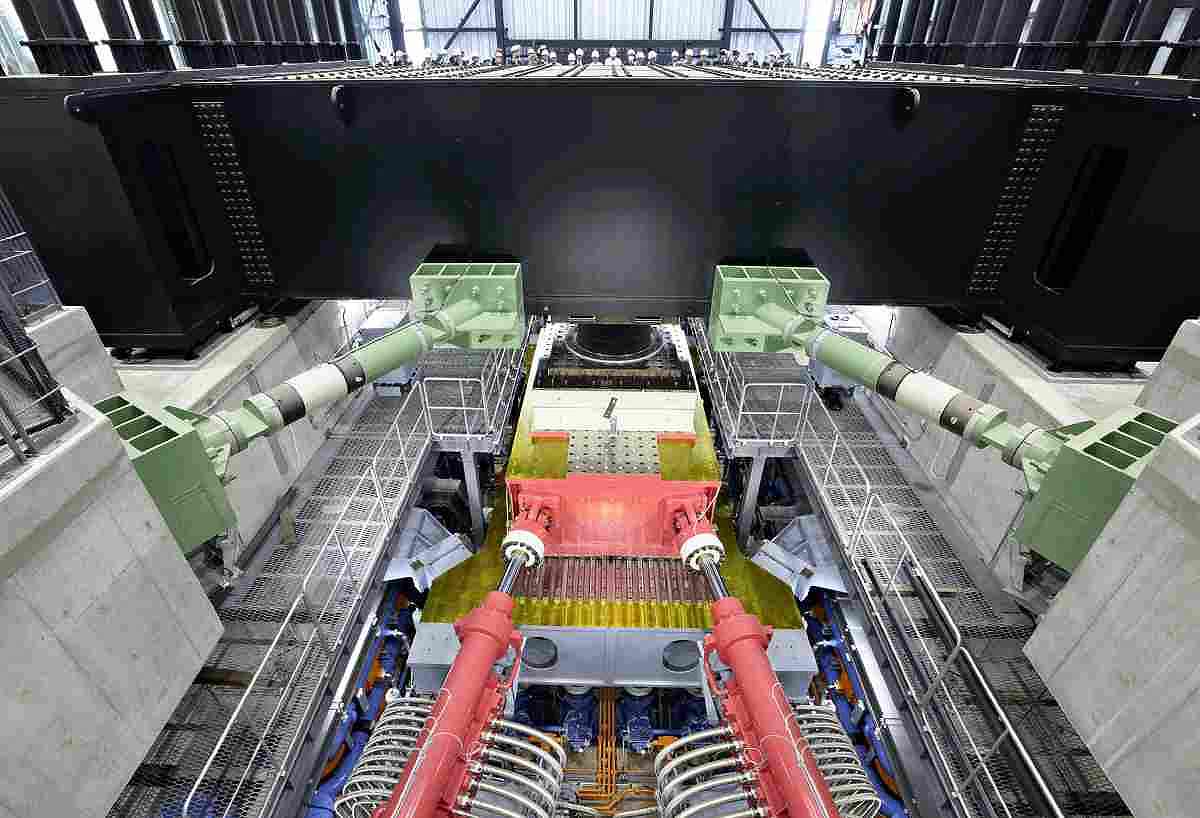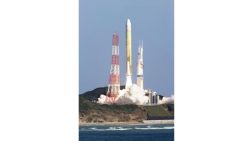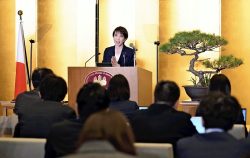Japanese Research Institute Plans to Create Certification System for Seismic Isolation Devices; Make Japan More Earthquake-Resilient

The E-Isolation test facility in Miki, Hyogo Prefecture, which is used to check the capability of seismic isolation and vibration control devices.
13:18 JST, January 16, 2024
The Japan Seismic Isolation Laboratory plans to create a new certification system as early as this summer to evaluate seismic isolation and vibration control devices which minimize the amount a building shakes during an earthquake.
The Hyogo Prefecture-based research institute foundation will check the devices in its facility used for the purpose, and third-party experts will confirm whether they are sufficiently effective.
During the Noto Peninsula Earthquake, the Keiju Medical Center in the city of Nanao and other buildings in Ishikawa Prefecture with such seismic isolation structures sustained lighter damage than similar buildings without them.
The laboratory aims to secure credibility for these kinds of devices under the new certification system to encourage their introduction.
It would be the first time in Japan that devices of this kind are certified as being effective. The laboratory said that devices which are confirmed to have the capability to deal with tremors of an intensity exceeding those in previous earthquakes that have hit the nation will be certified under the system.
Seismic isolation and vibration control devices absorb tremors from earthquakes and prevent heavy items of furniture from falling down. They include seismic isolation rubber bearings and oil dampers.
Under the new system, the laboratory, which was established by major general contractors including Kajima Corp. and Taisei Corp., will utilize the E-Isolation test facility in Miki, Hyogo Prefecture. The facility was built by the laboratory at a cost of about ¥6 billion.
The facility can reproduce tremors of huge earthquakes. Rubber bearings and other products made by hydraulic machinery makers will be transported into the test facility to be checked.
A committee comprising of four independent experts will evaluate test data and continue testing every three years, to examine whether the capabilities of tested devices changes over time.
Akira Wada, professor emeritus of the Tokyo Institute of Technology, who is a representative director of the laboratory, said “I hope the certification system will improve the credibility of the devices in society and aim to make Japan a nation which is highly resilient to earthquakes.”
Top Articles in Science & Nature
-

Japan Institute to Use Domestic Commercial Optical Lattice Clock to Set Japan Standard Time
-

Space Mission Demonstrates Importance of International Cooperation, Astronaut Kimiya Yui Says
-

Japan to Face Shortfall of 3.39 Million Workers in AI, Robotics in 2040; Clerical Workers Seen to Be in Surplus
-

Record 700 Startups to Gather at SusHi Tech Tokyo in April; Event Will Center on Themes Like Artificial Intelligence and Robotics
JN ACCESS RANKING
-

Japan Institute to Use Domestic Commercial Optical Lattice Clock to Set Japan Standard Time
-

Israeli Ambassador to Japan Speaks about Japan’s Role in the Reconstruction of Gaza
-

Man Infected with Measles May Have Come in Contact with Many People in Tokyo, Went to Store, Restaurant Around When Symptoms Emerged
-

Prudential Life Insurance Plans to Fully Compensate for Damages Caused by Fraudulent Actions Without Waiting for Third-Party Committee Review
-

Woman with Measles Visited Hospital in Tokyo Multiple Times Before Being Diagnosed with Disease
























